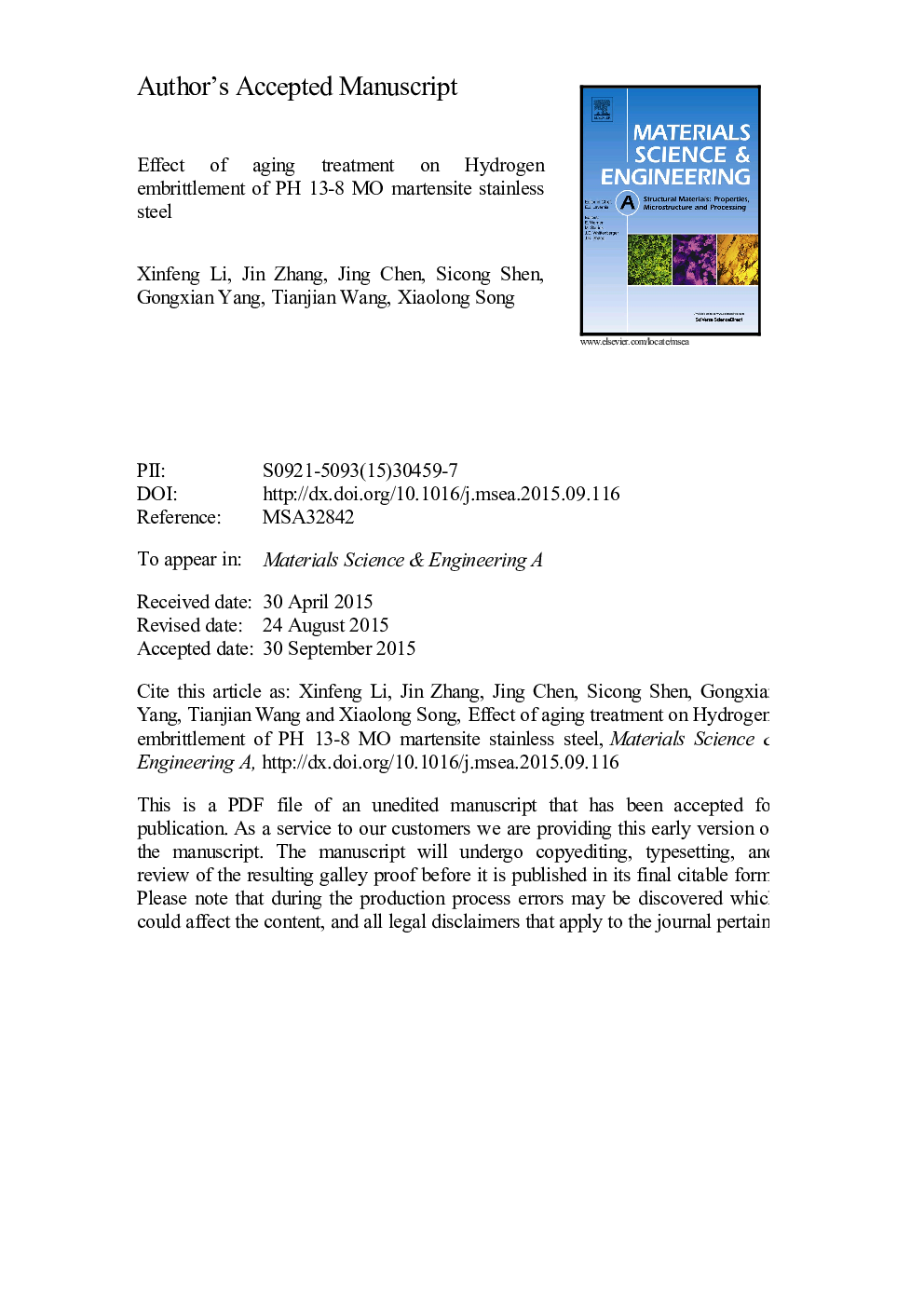| Article ID | Journal | Published Year | Pages | File Type |
|---|---|---|---|---|
| 7976062 | Materials Science and Engineering: A | 2016 | 22 Pages |
Abstract
The effect of aging treatment on hydrogen embrittlement of PH 13-8 Mo steel was investigated by tensile tests. The specimens were electrochemically hydrogen-charged in 0.5 mol/L NaOH solution with 1 g/L CH4N2S at room temperature for 24 h, and then were tensioned to fracture at different tensile rates. The results show that hydrogen slightly increases the tensile strength of the steel at high tensile rate (20 mm/min), but decreases the tensile strength at low tensile rate (0.5 mm/min and 0.03 mm/min). In the range of temperature from 540 °C to 750 °C, the specimen aged at 650 °C has the highest resistance to hydrogen embrittlement, which can be attributed to reverted austenite. At tensile rate of 0.03 mm/min, the SEM fractograph reveals quasi-cleavage and intergranular fracture mode for hydrogen-charged specimens aged at 540 °C, 600 °C,700 °C and 750 °C while dimple-type fracture mode for hydrogen-charged specimens aged at 650 °C.
Related Topics
Physical Sciences and Engineering
Materials Science
Materials Science (General)
Authors
Xinfeng Li, Jin Zhang, Jing Chen, Sicong Shen, Gongxian Yang, Tianjian Wang, Xiaolong Song,
